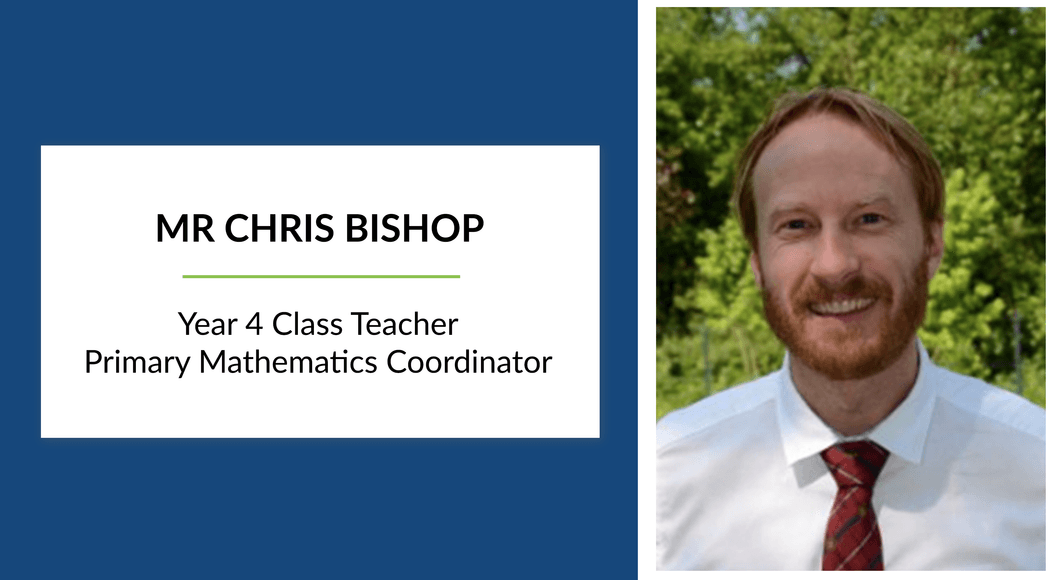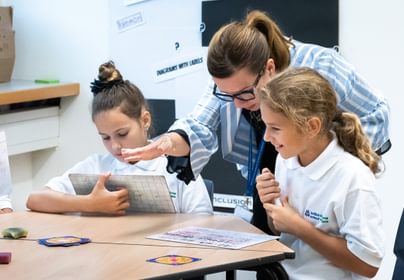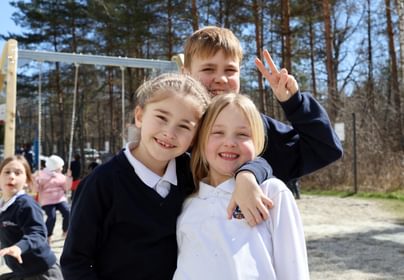Welcome back to our Teacher Feature series in Block 5, starting with another longstanding member of the BISL team, Mr Bishop, Year 4 Class Teacher and Primary Mathematics Coordinator, who has been with us since 2011.
Also an active cricket enthusiast, Mr Bishop’s enthusiasm for education, and mathematics in particular, is limitless. Be it in the organisation of a Mega Maths event across the school, through creative activities on residential trips, or in the classroom every day, he is always looking for ways to instil a love of mathematics in all of our primary students, by making the learning accessible and fun for all.
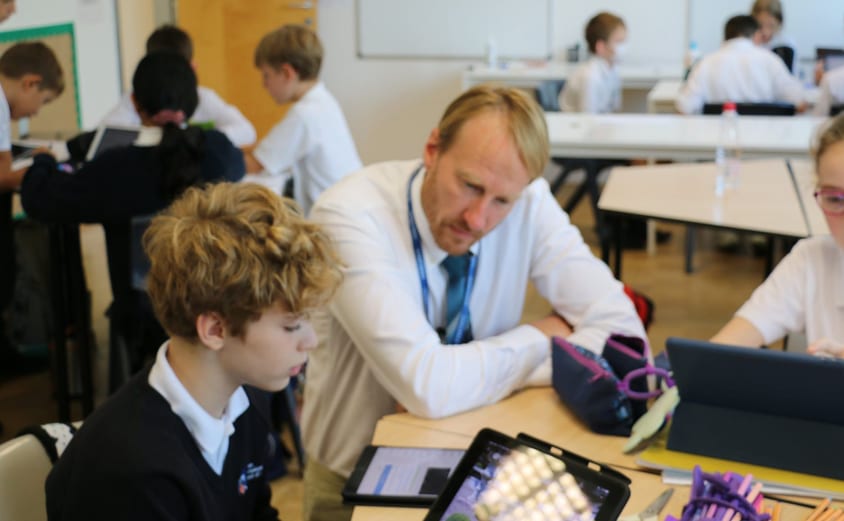

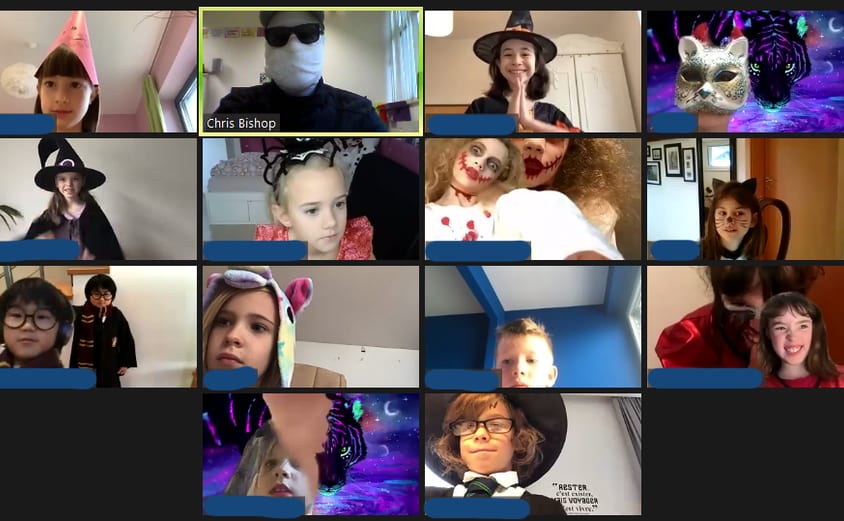


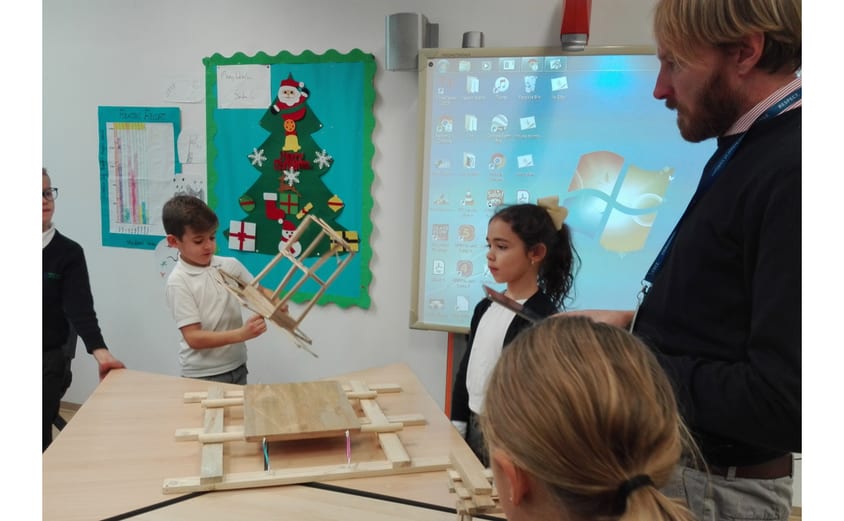
How did your journey as a teacher begin?
I started my journey in teaching many years ago when I was travelling around Asia. I was about to depart to Sumatra, when, on the evening prior to my departure, I met the director of a private college, who asked me if I would be interested in conducting English conversation classes at his school. I remained an extra month to do this interesting work, and I really enjoyed the experience. Then, in England, I continued with teaching English on holiday programmes, and then in Slovenia, I turned this into a career for a few years, teaching for several language schools in Ljubljana. Following this, I decided to get a degree in primary education back in Australia, and then returned to Slovenia to work as the English coordinator at the National Institute for Education on several projects around Slovenia, with a focus on enriching language education in state schools by incorporating a cross-curricular approach. When these projects were due to conclude, I applied for a job at BISL, and a decade later, I am still greatly enjoying my teaching career here. I also train candidates for the IELTS exam, conduct some university workshops as well as private tutoring, so teaching is really a key part of my life.
Why did you decide to specialise in Primary education?
When I decided to make the transition to a professional teaching career, I chose primary teaching as I wanted to have the diversity to teach a range of subjects. I had also taught primary aged students before and really liked their enthusiasm for learning, their lively energy and thirst for knowledge.
What makes BISL such a unique place to work?
In Slovenia, there are only a few international schools operating. I chose this school due to our philosophy of teaching students with an emphasis on creativity, innovation and cross-curricular learning. This suited my teaching style and values perfectly. I still strongly believe that this is the only school in Slovenia, and indeed in several neighbouring countries, which offers this opportunity to students and I am a firm believer that this is a very effective method of teaching as it intrinsically connects subjects and student knowledge.
How would you describe a typical day at BISL?
Very enjoyable and always something arises which offers a unique experience. I have been teaching here for 10 years now, and I can honestly say that I did not expect to remain in a job at a single school for so long, as I have always found change to be the spice of life. However, I have honestly found every day of my working career to be a pleasure, despite some challenges which the school and staff have had to overcome over the years, which have been great learning opportunities in hindsight. The students I teach are amazing: friendly, motivated and full of vibrance, which always inspires me and gives me the positive energy to do my job. Parents are also really kind and supportive, and I really look forward to the PTA events such as International Day each year. It is hard to believe that I have taught several of their children in different year groups (I refuse to think I am getting on in years). The staff are wonderful also, old and new, and this is also a big part of what makes BISL such a wonderful place to work.
Why is the experience of an international education important for a student?
In my opinion, studying in an international school brings many benefits to students. They learn what it is to be part of the international community, and are not limited to the immediate environment in which they find themselves. Whilst they of course learn about the local culture and country, they are able to get a bigger picture of the world around them as well. They quickly learn tolerance and become open-minded as they are surrounded by people from all around the globe, so are not prone to pick up stereotypical or xenophobic views, which we can sometimes see in closed societies. Students learn resilience and adaptability, often having to move schools several times in their student lives, or at least having their friends leave and then getting the opportunity to form new bonds as new classmates enter the school. They learn what it is to be a global citizen. And of course, a major benefit is studying a curriculum which is globally recognised and offers the chance to study in universities across the globe.
More from our Teacher Feature series
- 27.01.2021 - Ms Mateja Košec
- 13.01.2020 - Mrs Tanya Charlesworth
- 16.12.2020 - Ms Sarah Fairchild
- 09.12.2020 - Ms Polly Tušar
- 25.11.2020 - Mr Tobija Siter
- 04.11.2020 - Mr Gary Bradley
- 28.10.2020 - Ms Laura Harris
- 21.10.2020 - Ms Katarina Miklavec
- 6.10.2020 - Mr Jason Batson

